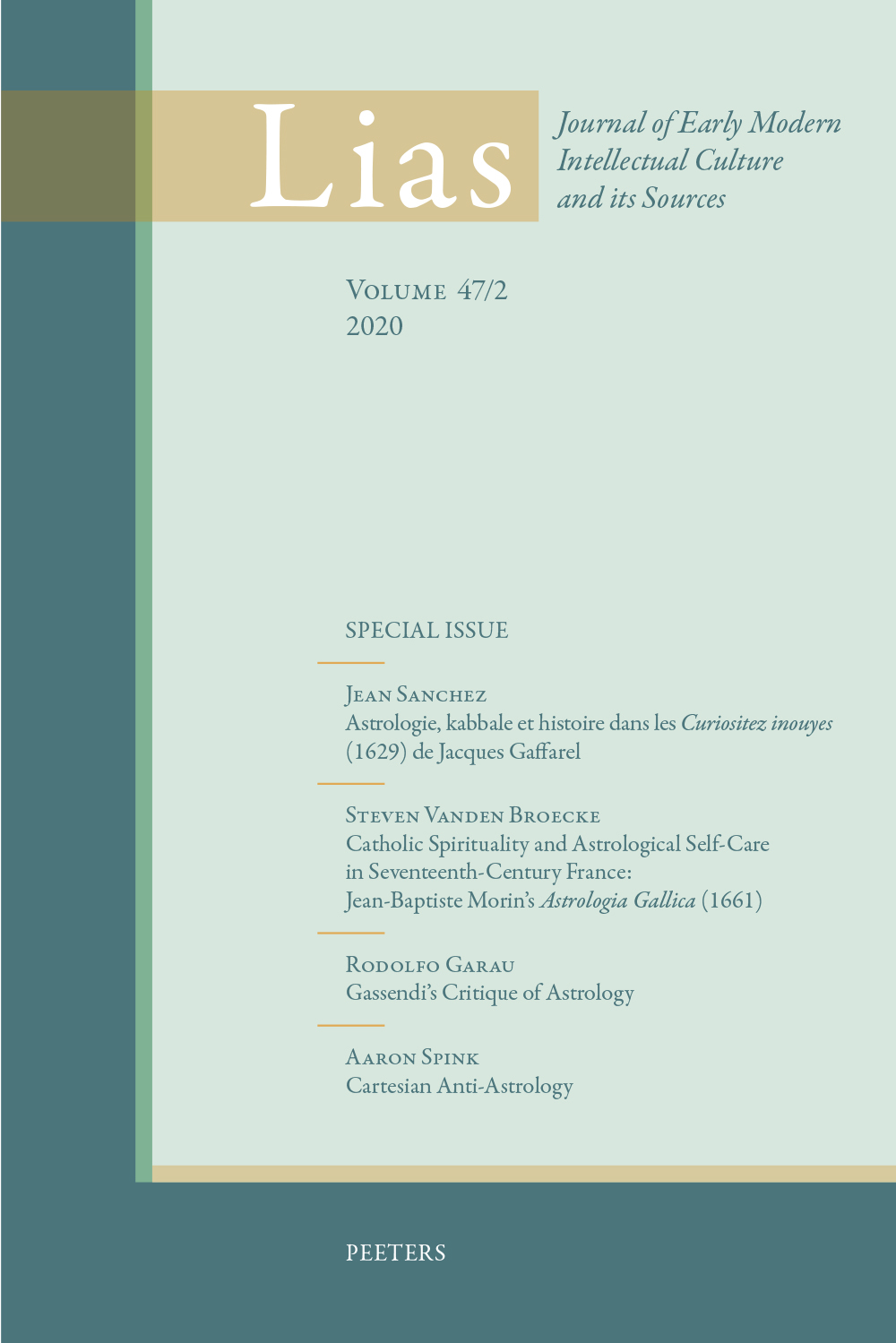 previous article in this issue previous article in this issue | next article in this issue  |

Preview first page |
Document Details : Title: Louvain Lyrical about Greek Subtitle: A Funerary Collection for Rutger Rescius (†1545) Retrieved Author(s): FEYS, Xander , VAN ROOY, Raf Journal: Lias Volume: 47 Issue: 1 Date: 2020 Pages: 17-66 DOI: 10.2143/LIAS.47.1.3289049 Abstract : In the present contribution we explore a recently discovered collection of Greek and Latin epitaphs (Leiden University Library, ms. VUL 103I A, available online) in memory of Rutger Rescius (†1545), the first professor of Greek at the Louvain Collegium Trilingue from 1518 until 1545. In all likelihood they were (at least partly) composed by the Spanish humanist Juan de Verzosa (1522/23-1574), a close colleague of Rescius at the Trilingue in the early 1540s. We first offer a brief historical introduction to the rise of Greek studies in the sixteenth-century Southern Low Countries and a discussion of the role of Rescius and Verzosa. We also sketch the history of the funerary collection, retrieved among the papers of the Bruges humanist Bonaventura Vulcanius (1538-1614), and provide a reflection on the habit of writing texts in Ancient Greek, especially in relation to the Louvain Trilingue. We draw attention to the performative and didactic dimensions of such poetry and the way in which it reveals the Renaissance cultus of Greek. In the remainder of our paper the poems (nine in Greek, two in Latin) are edited for the first time – critically where this was possible – and accompanied by an apparatus fontium, an English prose rendering, and explanatory notes. Two additional primary sources related to Greek studies in the sixteenth-century Southern Low Countries are critically edited here for the first time: (1) Bonaventura Vulcanius’ Greek funerary poem for Johannes Straselius (†1558), professor at the Collège Royal in Paris, which is inspired by Oppian’s Halieutica, and (2) the Trilingue professor Cornelius Valerius’ (ca. 1512-1578) preparatory notes for a laudatory declamation on the Greek language, which echoes a text by the Protestant Swiss humanist Conrad Gessner (1516-1565). |
|


